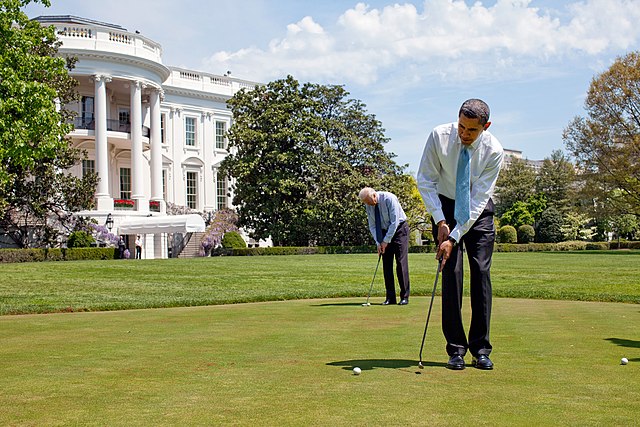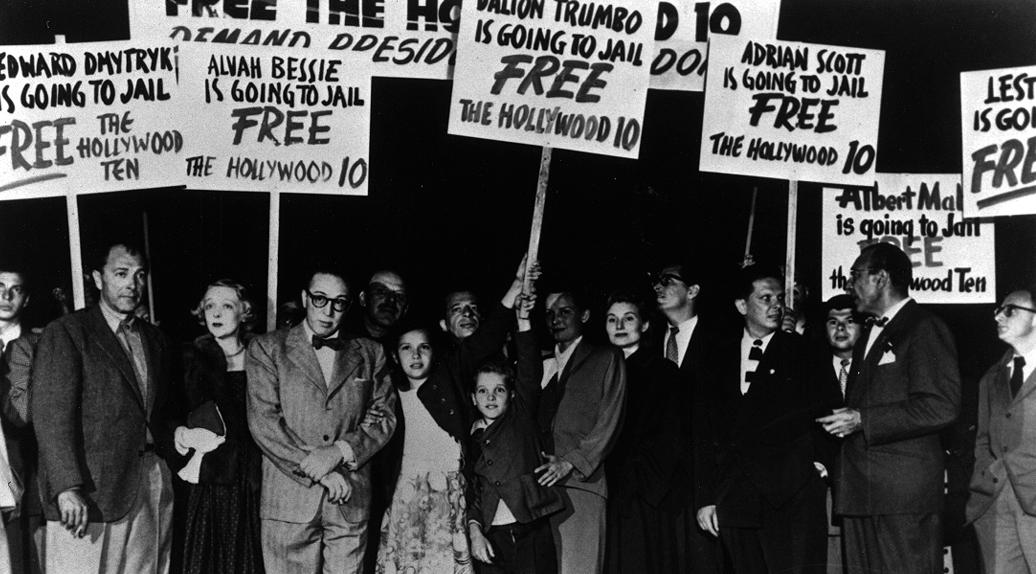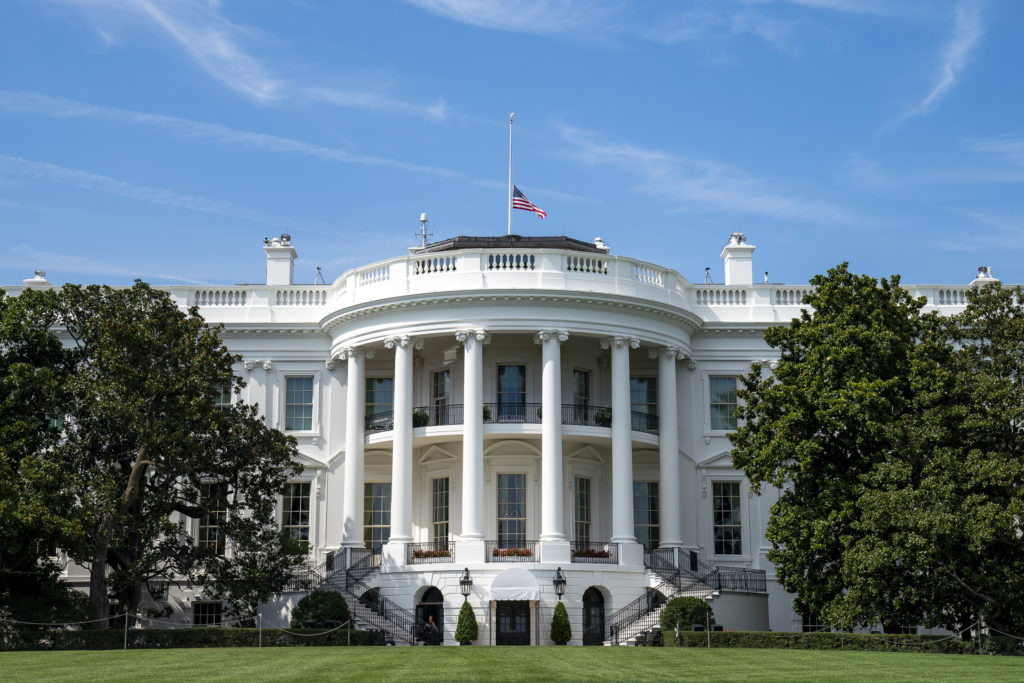National Security and Foreign Policy Highlights From the June 2024 Presidential Debate
The candidates discussed Jan. 6 and the wars in Ukraine and Gaza, among other topics.

Published by The Lawfare Institute
in Cooperation With

On June 27, President Joe Biden and former President Donald Trump faced off in their first debate since 2020. Moderated by CNN’s Jake Tapper and Dana Bash in an audience-free Atlanta studio, the debate offered some, albeit limited, insight into the candidates’ differing perspectives on a wide variety of foreign policy and national security issues facing the nation. The two drew sharp contrasts on issues ranging from the ongoing wars in Ukraine and the Middle East to the Jan. 6 attack on the Capitol, immigration, climate change, and other related challenges.
Many have and will continue to discuss how the candidates conveyed their arguments and the merits of their positions. Those are important conversations, and commentators and the public should have them. We have a different objective here: to lay out the discussion of national security and foreign policy issues during the debate.
Afghanistan
Trump asserted that the U.S. was in the process of leaving Afghanistan during his administration and that a withdrawal under his leadership would have been “with dignity, with strength, with power,” contrasting it with what he described as “the most embarrassing day in the history of our country’s life.” Trump emphasized the purported lack of accountability by noting, “No general got fired for the most embarrassing moment in the history of our country, Afghanistan, where we left billions of dollars of equipment behind; we lost 13 beautiful soldiers and 38 soldiers were obliterated. And by the way, we left people behind too. We left American citizens behind.” Biden noted that the U.S. was still fighting in Afghanistan during Trump’s presidency and said that Trump “didn’t do anything about that.” Biden said his administration “got over 100,000 Americans and others out of Afghanistan” during the airlift at the end of the withdrawal.
The War in Ukraine and NATO
Trump linked the withdrawal from Afghanistan to Russia’s invasion of Ukraine. He argued that the nature of the withdrawal influenced Russia’s decision to invade Ukraine: “When Putin saw that, he said, you know what, I think we’re going to go in and maybe take … his dream.”
Trump argued that the financial support the Biden administration has provided to Ukraine has been excessive and ineffective. He remarked, “He’s given $200 billion now or more to Ukraine. He’s given $200 billion. That’s a lot of money. I don’t think there’s ever been anything like it. Every time that Zelensky comes to this country, he walks away with $60 billion, he’s the greatest salesman ever.” Trump continued, “I’m only saying, the money that we’re spending on this war, and we shouldn’t be spending, it should have never happened. I will have that war settled between Putin and Zelensky as president-elect before I take office on January 20th. I’ll have that war settled.”
Trump criticized the NATO alliance for not contributing enough financially, claiming that during his presidency, he pressured NATO members to significantly increase their defense spending, which he says they did, but now they are not contributing enough to support Ukraine.
Biden, on the other hand, called Putin a war criminal with aggressive territorial ambitions. He highlighted the importance of the economic and military support to Ukraine provided by the U.S. and its allies, stressing that Kyiv’s fight is crucial for global peace and security. Biden argued that Putin “wants to re-establish what was part of the Soviet Empire, not just a piece, he wants all of Ukraine. That’s what he wants. And then do you think he’ll stop there? Do you think he’ll stop when he—if he takes Ukraine? What do you think happens to Poland? What do you think of Belarus? What do you think happens to those NATO countries?"
Biden also praised the resolve that the rest of the alliance has shown in its support for Ukraine. He asserted, “[O]ur NATO allies have produced as much funding for Ukraine as we have. That’s why it’s—that’s why we’re strong.” He also emphasized the importance of maintaining Western unity to deter further Russian aggression. Biden criticized Trump’s stance on NATO, saying,
I’ve never heard so much foolishness. This [is] a guy who wants to get out of NATO. You’re going to stay in NATO or you’re going to pull out of NATO? … What happens if in fact you have Putin continue to go into NATO? We have an Article Five agreement, attack on one is attack on all. You want to start the nuclear war he keeps talking about. Go ahead. Let Putin go in and control Ukraine and then move on to Poland and other places. See what happens then.
Biden concluded by highlighting the global importance of the conflict, noting that “this kind of dislocation has a serious threat to the whole world peace. No major war in Europe has ever been able to be contained just to Europe.”
Biden at one point questioned Trump’s relationship with the leaders of U.S. adversaries, such as Putin and North Korea’s Kim Jong Un. Trump later asserted that foreign leaders do not respect or fear Biden, and that “we’re closer to World War Three than anybody can imagine.”
Immigration and the Border
The candidates also focused heavily on immigration and border policy. In a statement that would become a theme for the former president, Trump said that Biden “allowed millions of people to come in here from prisons, jails, and mental institutions to come into our country and destroy our country.”
Trump claimed that the United States has terrorists entering the country from around the world. He declared that under his administration, “we had the safest border in history. Now we have the worst border in history. There’s never been anything like it. And people are dying all over the place, including the people that are coming up in caravans.”
Biden maintained that his administration has addressed border security concerns by pushing through a bipartisan agreement and increasing the number of border patrol and asylum officers. Biden contrasted his policies with Trump’s, which Biden noted resulted in separating family members from one another.
Returning to terrorism in the context of the border discussion, Biden, seemingly referencing the 2019 shooting at the Naval Air Station Pensacola, asserted that Trump allowed a terrorist to cross the border. Biden said that “[t]he only terrorist who has done anything crossing the border is one who came along and killed three under his administration.” (There were multiple terrorist attacks carried out by foreign terrorists during Trump’s presidency.) Trump responded by describing his terrorism record—the killing of Islamic State leader Abu Bakr al-Baghdadi and Islamic Revolutionary Guard Corps Officer Qasem Soleimani, saying, “The people we killed are al-Baghdadi and Soleimani, the two greatest terrorists—biggest terrorists anywhere in the world, and it had a huge impact on everything, not just border, on everything.”
The War in Gaza
When it came to the ongoing war in Gaza, Biden reiterated his three-point proposal for resolving the conflict. According to President Biden, “The first stage is to treat the hostages for a ceasefire. Second phase is a ceasefire with additional conditions. The third phase is []now the end of the war. The only one who wants the war to continue is Hamas, number one. They’re the only ones standing down.” President Biden also claimed to have saved Israel after Iran’s failed ballistic missile attack last spring: “I’m the guy that organized the world against Iran when they had a full-blown kind of ballistic missile attack on Israel. No one was hurt. No one Israeli was accidentally killed. And it stopped. We saved Israel.”
Biden noted that the United States is “providing Israel with all the weapons they need and when they need them,” with the exception of 2,000-pound bombs. Biden asserted that Hamas has been “greatly weakened” but stressed that Israel should be careful not to use certain weapons in population centers.
Trump posited that Oct. 7. never would have happened if he had been in office. He said that President Biden “has become like a Palestinian. But, they don’t like him because he is a very bad Palestinian. He is a weak one.” In response to Biden’s proposal for ending the conflict, Trump argued that Israel is the one that wants to leave Gaza and that Biden should “let them [Israel] finish the job.” Asked if he would back the establishment of a Palestinian state to “achieve peace in the region,” Trump said that he would “have to see.”
Jan. 6 and Democracy
The other fateful day discussed during the debate was Jan. 6. Biden condemned Trump for encouraging his supporters “to go up on Capitol Hill,” and for Trump’s decision to delay calling off the rioters for several hours.
Trump defended his actions on Jan. 6, claiming he had merely called on his supporters who attended his rally on that day to protest peacefully and patriotically against unsubstantiated electoral irregularities: “I said peacefully and patriotically. And Nancy Pelosi ... I offered them 10,000 soldiers or National Guard. And she turned them down. And … the mayor of D.C., they turned it down,” Trump said. (There does not appear to be any reliable evidence of Trump's offers to Pelosi or to D.C. Mayor Muriel Bowser for 10,000 National Guard troops.) Trump maintained that he had “virtually nothing to do” with the violence.
In turn, Biden framed Trump as a threat to American democracy, noting that he is a convicted felon. Biden accused Trump of fostering political violence and attempting to undermine democratic processes. In response to a question about whether Trump was a threat to democracy, Biden stated that the violent Neo-Nazi protests during the August 2017 “Unite the Right Rally” in Charlottesville, Virginia, galvanized him to run for president in 2020: “I said, I wasn’t going to run again, until I saw what happened in Charlottesville, Virginia. People coming out of the woods carrying swastikas on torches and singing the same anti-Semitic bile they sang back in Germany.” Biden further criticized Trump’s rhetoric and failure to rebuke the protestors, which Trump denied: “He made up the Charlottesville story and you’ll see it’s debunked all over the place. Every anchor has—every reasonable actor has debunked it. And just the other day it came out where it was fully debunked. It’s a nonsense story. He knows that.”
Trump countered by asserting that his presidency was globally marked by respect and strength, unlike Biden’s tenure. “On January 6th, we were respected all over the world …. [W]hat happened to the United States’s reputation under this man’s leadership is horrible, including weaponization ... he goes after his political opponent because he can’t beat them fair and square,” Trump said. He criticized the Jan. 6 committee and accused it of destroying evidence that could exonerate him. “[T]hey destroyed and deleted all of the information they found because they found out we were right. We were right. And they deleted and destroyed all of the information. They should go to jail for that,” Trump stated. (There is no evidence that the Jan. 6 committee destroyed evidence.)
Biden noted that Trump has several more cases against him on the horizon. Trump accused Biden of using the Department of Justice to target him and his supporters unfairly, portraying himself as a victim of a politically motivated witch hunt. “This man is a criminal. This man—you’re lucky. You’re lucky. I did nothing wrong. We’d have a system that was rigged and disgusting. I did nothing wrong,” Trump claimed. He suggested that Biden and his family were engaged in corrupt activities and should face legal consequences. When asked whether he would pursue legal retribution against his political opponents, Trump said, “[M]y retribution is going to be success,” though he added that President Biden “could be a convicted felon as soon as he gets out of office.”
Veteran Policy
Former President Trump accused President Biden of “getting rid of all the things he approved” and took credit for the Veterans Choice health care law. (Congress originally passed this law under President Obama in 2014, although Trump did expand the program.) Trump also said Biden did not care about veterans and stated that Biden undid the progress that Trump had made. (It’s not clear what Trump is referring to here.) Trump also argued that U.S. veterans and soldiers “can’t stand” Biden and believe him to be the “worst commander in chief that the United States has ever had.”
Conversely, President Biden stated that veterans are better off under his watch after he passed the PACT Act. Biden asserted that his administration has done more for veterans than any other president in American history.
China
During a discussion about the economy, Trump and Biden criticized each other’s China trade policies. Trump said that under Biden, the U.S. now has “the largest deficit with China. He gets paid by China. He’s a Manchurian Candidate. He gets money from China …. But he hasn’t cut the tariffs because he can’t, because it’s too much money.” (The U.S. deficit with China is not currently at its highest point, and there is no evidence that President Biden has received any money from China.) Biden countered that “this tariff—these 10 percent tariffs, everything coming into the country, you know what the economists say? That’s going to cost the average American $2,500 a year and more, because they’re going to have to pay the difference in food and all the things that are very important. Number two, you have not, in fact, made any contact, any progress with China. We are the lowest trade deficit with China since 2010.” (President Biden exaggerated economists' projected cost of a 10 percent tariff on all imported goods for the average American.)








